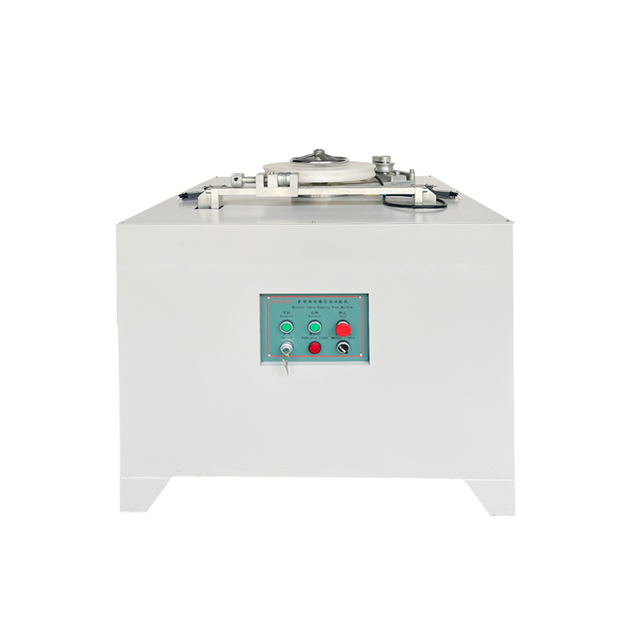Tensile Strength Testing Device for Material Performance Evaluation and Quality Assurance
Understanding the Importance of Tensile Strength Testers
In the world of material science and engineering, the tensile strength of a material is a crucial property that defines its performance and suitability for various applications. Tensile strength testers serve as essential instruments in measuring this property, allowing engineers and researchers to evaluate materials' mechanical behavior under tension. This article explores the significance of tensile strength testers, their working principles, types, and applications in different industries.
What is Tensile Strength?
Tensile strength is the maximum amount of tensile (pulling) stress that a material can withstand before failure or rupture. It is a critical measure for ensuring the safety and reliability of structures and components, especially those subjected to tension forces, such as cables, beams, and various machinery parts. The tensile strength is typically expressed in megapascals (MPa) or pounds per square inch (psi).
The Role of Tensile Strength Testers
Tensile strength testers, also known as universal testing machines or tensile testers, are designed to apply controlled tension to a material specimen until it fractures. The testing procedure provides valuable data, including the material's yield point, ultimate tensile strength, elongation, and reduction of area. This information guides engineers in selecting the right materials for specific applications, ensuring that products meet the required safety and performance standards.
How Tensile Strength Testing Works
The testing process begins with preparing a specimen, typically in the form of a standardized shape, such as a dog-bone or flat sample. The specimen is then placed in the jaws of the tensile strength tester. One end of the specimen is fixed, while the other is subjected to a controlled pulling force. As the test progresses, the machine records the force applied and the corresponding elongation of the specimen until it eventually fractures.
The data collected during the test is plotted on a stress-strain curve, which illustrates the relationship between the applied stress and the resulting strain (deformation) of the material. Key points on this curve, such as the yield strength and ultimate tensile strength, provide important insights into the material's properties.
Types of Tensile Strength Testers
tensile strength tester

There are several types of tensile strength testers available, each suited for various applications
1. Electronic Tensile Testing Machines These machines offer high precision and are equipped with advanced software for data collection and analysis. They are commonly used in research and development environments.
2. Hydraulic Tensile Testing Machines Utilizing hydraulic pressure to apply force, these machines can test larger specimens and are often used in industrial applications.
3. Mechanical Tensile Testing Machines These are simpler machines that use a mechanical mechanism to apply force. They are suitable for smaller-scale testing and are more cost-effective.
Applications of Tensile Strength Testing
Tensile strength testing is widely utilized across multiple industries
- Construction To ensure the safety and integrity of building materials, such as steel and concrete. - Aerospace In the selection and testing of lightweight, high-strength materials for aircraft and spacecraft components. - Automotive For evaluating metals, polymers, and composites used in vehicle manufacturing to enhance performance and safety. - Textiles To assess the strength and durability of fabrics and fibers used in apparel and industrial applications.
Conclusion
Tensile strength testers play a pivotal role in the evaluation and selection of materials across various sectors. By providing critical data on material behavior under stress, these instruments help ensure that products are safe, reliable, and efficient. As technology advances, the capabilities of tensile strength testers continue to improve, paving the way for innovations in material science and engineering. Understanding and utilizing these machines is essential for any professional involved in materials testing and quality assurance.
-
Why the Conductor Resistance Constant Temperature Measurement Machine Redefines Precision
NewsJun.20,2025
-
Reliable Testing Starts Here: Why the High Insulation Resistance Measuring Instrument Is a Must-Have
NewsJun.20,2025
-
Flexible Cable Flexing Test Equipment: The Precision Standard for Cable Durability and Performance Testing
NewsJun.20,2025
-
Digital Measurement Projector: Precision Visualization for Modern Manufacturing
NewsJun.20,2025
-
Computer Control Electronic Tensile Tester: Precision and Power for the Modern Metal Industry
NewsJun.20,2025
-
Cable Spark Tester: Your Ultimate Insulation Assurance for Wire and Cable Testing
NewsJun.20,2025
 Copyright © 2025 Hebei Fangyuan Instrument & Equipment Co.,Ltd. All Rights Reserved. Sitemap | Privacy Policy
Copyright © 2025 Hebei Fangyuan Instrument & Equipment Co.,Ltd. All Rights Reserved. Sitemap | Privacy Policy
